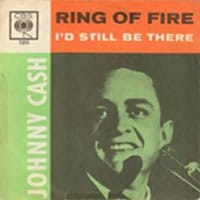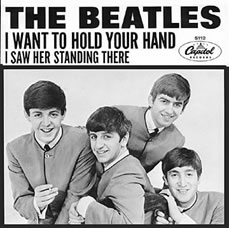The 13h Floor Elevator: You’re Gonna Miss Me

The 13h Floor Elevator: You’re Gonna Miss Me is a song by the American psychedelic rock band the 13th Floor Elevators, written by Roky Erickson, and released as the group’s debut single on Contact Records, on January 17, 1966.
It was reissued nationally on International Artists, in May 1966 (see 1966 in music). Musically inspired by traditional jug band and R&B music, combined with the group’s own experimentation, “You’re Gonna Miss Me”, along with its Stacy Sutherland and Tommy Hall-penned B-side, “Tried to Hide”, was influential in developing psychedelic rock, garage rock, and was one of the earliest rock compositions to utilize the electric jug. Accordingly, critics often cite “You’re Gonna Miss Me” as a bona fide garage rock song, as well as a classic of the counterculture era.
“You’re Gonna Miss Me” reached number 55 on the Billboard Hot 100, making it the 13th Floor Elevators’ only single to chart nationally. The failure of the song to achieve a higher chart listing is attributed to poor distribution by a disestablished record label. In addition, the band was prevented from consistently touring during their parole for possession of marijuana. The song was also included as a track on their debut album, The Psychedelic Sounds of the 13th Floor Elevators, in November 1966.
Johnny Cash: Ring of Fire
 Johnny Cash: Ring of Fire is a song written by June Carter Cash and Merle Kilgore and recorded by Johnny Cash. The single appears on Cash’s 1963 album, Ring of Fire: The Best of Johnny Cash.
Johnny Cash: Ring of Fire is a song written by June Carter Cash and Merle Kilgore and recorded by Johnny Cash. The single appears on Cash’s 1963 album, Ring of Fire: The Best of Johnny Cash.
The song was originally recorded by June’s sister, Anita Carter, on her Mercury Records album Folk Songs Old and New (1963) as “(Love’s) Ring of Fire”. “Ring of Fire” was ranked No. 4 on CMT’s 100 Greatest Songs of Country Music in 2003 and #87 on Rolling Stone’s list of The 500 Greatest Songs of All Time.
The song was recorded on March 25, 1963, and became the biggest hit of Cash’s career, staying at number one on the country chart for seven weeks. It was certified Gold on January 21, 2010, by the RIAA and has also sold over 1.2 million digital downloads
The Shrangri-Las: Leader of the Pack

The Shrangri-Las: Leader of the Pack is a song written by George “Shadow” Morton, Jeff Barry, and Ellie Greenwich.
It was a number one pop hit in 1964 for the American girl group The Shangri-Las. The single is one of the group’s best known songs as well as a popular cultural example of a “teenage tragedy song”.
The Beach Boys: Help Me Rhonda
 The Beach Boys: Help Me Rhonda is a song written and composed by Brian Wilson with additional lyrics by Mike Love for American rock band the Beach Boys. It was first released as “Help Me, Ronda” in March 1965 on the album The Beach Boys Today!
The Beach Boys: Help Me Rhonda is a song written and composed by Brian Wilson with additional lyrics by Mike Love for American rock band the Beach Boys. It was first released as “Help Me, Ronda” in March 1965 on the album The Beach Boys Today!
A second recording, with a significantly different arrangement, was issued as a single under the revised title “Help Me, Rhonda”. The single peaked at number one in the United States, making it the second Beach Boys single to reach that position after “I Get Around” in 1964. The single version was later released on the album Summer Days (And Summer Nights!!) in June 1965.
Elvis Presley: Suspicious Minds
 Elvis Presley: Suspicious Minds is an American song written and first recorded by American songwriter Mark James. After James’ recording failed commercially, the song was handed to Elvis Presley by producer Chips Moman, becoming a number one song in 1969, and one of the most notable hits of Presley’s career.
Elvis Presley: Suspicious Minds is an American song written and first recorded by American songwriter Mark James. After James’ recording failed commercially, the song was handed to Elvis Presley by producer Chips Moman, becoming a number one song in 1969, and one of the most notable hits of Presley’s career.
“Suspicious Minds” was widely regarded as the single that returned Presley’s career success, following his ’68 Comeback Special. It was his eighteenth and last number-one single in the United States. In 2004, Rolling Stone ranked it No. 91 on their list of the 500 Greatest Songs of All Time.[citation needed] Session guitarist Reggie Young played on both the James and Presley versions.
The Monkees: I’m a Believer
 The Monkees: I’m a Believer is a song composed by Neil Diamond and recorded by The Monkees in 1966 with the lead vocals by Micky Dolenz. The single, produced by Jeff Barry, hit the number one spot on the U.S. Billboard Hot 100 chart for the week ending December 31, 1966 and remained there for seven weeks, becoming the last No. 1 hit of 1966 and the biggest-selling record for all of 1967. Billboard ranked the record as the No. 5 song for 1967.
The Monkees: I’m a Believer is a song composed by Neil Diamond and recorded by The Monkees in 1966 with the lead vocals by Micky Dolenz. The single, produced by Jeff Barry, hit the number one spot on the U.S. Billboard Hot 100 chart for the week ending December 31, 1966 and remained there for seven weeks, becoming the last No. 1 hit of 1966 and the biggest-selling record for all of 1967. Billboard ranked the record as the No. 5 song for 1967.
Because of 1,051,280 advance orders, it went gold within two days of release. It is one of the fewer than forty all-time singles to have sold 10 million (or more) physical copies worldwide.
The song was No. 1 in the UK Singles Chart for four weeks in January and February 1967, as well as a Number 1 in numerous countries including Australia, Canada, and Ireland.The success of the single prompted the song to appear in four consecutive episodes of The Monkees’ TV show throughout December 1966.
The Shirelles: Will You Love Me Tomorrow
 The Shirelles: Will You Love Me Tomorrow is a song written by Gerry Goffin and Carole King. It was originally recorded in 1960 by the Shirelles, who took their single to number one on the Billboard Hot 100 chart.
The Shirelles: Will You Love Me Tomorrow is a song written by Gerry Goffin and Carole King. It was originally recorded in 1960 by the Shirelles, who took their single to number one on the Billboard Hot 100 chart.
The song is also notable for being the first song by an all-girl group to reach number one in the United States. It has since been recorded by many artists over the years, including a 1971 version by co-writer Carole King.
The Beatles: I Want to Hold Your Hand
The Beatles: I Want to Hold Your Hand is a song by the English rock band the Beatles. Written by John Lennon and Paul McCartney, and recorded in October 1963, it was the first Beatles record to be made using four-track equipment.
 With advance orders exceeding one million copies in the United Kingdom, “I Want to Hold Your Hand” would have gone straight to the top of the British record charts on its day of release (29 November 1963) had it not been blocked by the group’s first million seller “She Loves You”, their previous UK single, which was having a resurgence of popularity following intense media coverage of the group. Taking two weeks to dislodge its predecessor, “I Want to Hold Your Hand” stayed at number one for five weeks and remained in the UK top 50 for 21 weeks in total.
With advance orders exceeding one million copies in the United Kingdom, “I Want to Hold Your Hand” would have gone straight to the top of the British record charts on its day of release (29 November 1963) had it not been blocked by the group’s first million seller “She Loves You”, their previous UK single, which was having a resurgence of popularity following intense media coverage of the group. Taking two weeks to dislodge its predecessor, “I Want to Hold Your Hand” stayed at number one for five weeks and remained in the UK top 50 for 21 weeks in total.
It was also the group’s first American number one, entering the Billboard Hot 100 chart on 18 January 1964 at number 45 and starting the British invasion of the American music industry. By 1 February it held the number-one spot, and stayed there for seven weeks before being replaced by “She Loves You”, a reverse scenario of what had occurred in Britain. It remained on the Billboard chart for 15 weeks.
“I Want to Hold Your Hand” became the Beatles’ best-selling single worldwide. In 2013, Billboard magazine named it the 44th biggest hit of “all-time” on the Billboard Hot 100 charts.
Bob Dylan: Like a Rolling Stone
Bob Dylan: Like a Rolling Stone is a 1965 song by the American singer-songwriter Bob Dylan. Its confrontational lyrics originated in an extended piece of verse Dylan wrote in June 1965, when he returned exhausted from a grueling tour of England. Dylan distilled this draft into four verses and a chorus. “Like a Rolling Stone” was recorded a few weeks later as part of the sessions for the forthcoming album Highway 61 Revisited.
 During a difficult two-day preproduction, Dylan struggled to find the essence of the song, which was demoed without success in 3/4 time. A breakthrough was made when it was tried in a rock music format, and rookie session musician Al Kooper improvised the organ riff for which the track is known.
During a difficult two-day preproduction, Dylan struggled to find the essence of the song, which was demoed without success in 3/4 time. A breakthrough was made when it was tried in a rock music format, and rookie session musician Al Kooper improvised the organ riff for which the track is known.
However, Columbia Records was unhappy with both the song’s length at over six minutes and its heavy electric sound, and was hesitant to release it. It was only when a month later a copy was leaked to a new popular music club and heard by influential DJs that the song was put out as a single. Although radio stations were reluctant to play such a long track, “Like a Rolling Stone” reached number two in the US Billboard charts (number one in Cashbox) and became a worldwide hit.
Critics have described the track as revolutionary in its combination of different musical elements, the youthful, cynical sound of Dylan’s voice, and the directness of the question “How does it feel?” “Like a Rolling Stone” transformed Dylan’s image from folk singer to rock star, and is considered one of the most influential compositions in postwar popular music.
Rolling Stone magazine listed the song at number one in their “500 Greatest Songs of All Time” list. The song has been covered by numerous artists, from The Jimi Hendrix Experience and The Rolling Stones to The Wailers and Green Day.
At an auction in 2014, Dylan’s handwritten lyrics to the song fetched $2 million, a world record for a popular music manuscript
Sonny and Cher: I Got You Babe
Sonny and Cher: I Got You Babe is a song written by Sonny Bono. It was the first single taken from the debut studio album Look at Us, of the American pop music duo Sonny & Cher. In August 1965, their single spent three weeks at number 1 on the Billboard Hot 100 in the United States where it sold more than 1 million copies and was certified Gold. It also reached number 1 in the United Kingdom and Canada.
In 1985, a cover version of “I Got You Babe” by British reggae/pop band UB40 featuring American singer Chrissie Hynde, peaked at number one in the UK Singles Chart and reached number 28 on the US Billboard Hot 100 chart. A 1993 version by Cher with Beavis and Butt-Head bubbled under the Hot 100 chart.
Aretha Franklin: Respect
Aretha Franklin: Respect is a song written and originally released by American recording artist Otis Redding in 1965. The song became a 1967 hit and signature song for R&B singer Aretha Franklin.
The music in the two versions is significantly different, and through a few minor changes in the lyrics, the stories told by the songs have a different flavor.
Redding’s version is a plea from a desperate man, who will give his woman anything she wants. He won’t care if she does him wrong, as long as he gets his due respect, when he comes home. However, Franklin’s version is a declaration from a strong, confident woman, who knows that she has everything her man wants. She never does him wrong, and demands his “respect”.
Franklin’s version adds the “R-E-S-P-E-C-T” chorus and the backup singers’ refrain of “Sock it to me, sock it to me, sock it to me…”
Rolling Stone: Honky Tonk Women
Rolling Stone: Honky Tonk Women is a 1969 hit song by The Rolling Stones. Released as a single only release (although a country version was included on Let It Bleed), on 4 July 1969 in the United Kingdom and a week later in the United States, it topped the charts in both nations.
The song was written by Mick Jagger and Keith Richards while on holiday in Brazil from late December 1968 to early January 1969, inspired by Brazilian “caipiras” (inhabitants of rural, remote areas of parts of Brazil) at the ranch where Jagger and Richards were staying in Matão, São Paulo.
Two versions of the song were recorded by the band: the familiar hit which appeared on the 45 single and their collection of late 1960s singles, Through the Past, Darkly (Big Hits Vol. 2); and a honky-tonk version entitled “Country Honk” with slightly different lyrics, which appeared on Let It Bleed (1969).
Thematically, a “honky tonk woman” refers to a dancing girl in a western bar who may work as a prostitute; the setting for the narrative in the first verse of the blues version is Memphis, Tennessee, while “Country Honk” sets the first verse in Jackson, Mississippi.
I met a gin soaked bar-room queen in Memphis
I’m sittin’ in a bar, tippin’ a jar in Jackson
The band initially recorded the track called “Country Honk”, in London in early March 1969. Brian Jones was present during these sessions and may have played on the first handful of takes and demos. It was his last recording session with the band.
The song was transformed into the familiar electric, riff-based hit single “Honky Tonk Women” sometime in the spring of 1969, prior to Mick Taylor’s joining the group. In an interview in the magazine Crawdaddy!, Richards credits Taylor for influencing the track: “… the song was originally written as a real Hank Williams/Jimmie Rodgers/1930s country song. And it got turned around to this other thing by Mick Taylor, who got into a completely different feel, throwing it off the wall another way.”
However, in 1979 Taylor recalled it this way: “I definitely added something to Honky Tonk Women, but it was more or less complete by the time I arrived and did my overdubs.”
“Honky Tonk Women” is distinctive as it opens not with a guitar riff, but with a beat played on a cowbell. The Rolling Stones’ producer Jimmy Miller performed the cowbell for the recording.
Marvin Gaye: I Heard it Through the Grapevine
Marvin Gaye: I Heard it Through the Grapevine a song written by Norman Whitfield and Barrett Strong for Motown Records in 1966. The first recording of the song to be released was produced by Whitfield for Gladys Knight & the Pips and released as a single in September 1967; it went to number two in the Billboard chart.
Whitfield recorded the song with Marvin Gaye over five sessions, the first on February 3, 1967, and the final one on April 10, 1967. Recordings of this version took more than a month due to Whitfield overdubbing Gaye’s vocals with that of the Andantes’ background vocals, mixing in several tracks featuring the Funk Brothers on the rhythm track, and adding the string section from the Detroit Symphony Orchestra with an arrangement by Paul Riser.
Glen Campbell: Wichita Lineman
Glen Campbell: Wichita Lineman is a song written by American songwriter Jimmy Webb in 1968. It was first recorded by American country music artist Glen Campbell with backing from members of The Wrecking Crew and widely covered by other artists.
Campbell’s version, which appeared on his 1968 album of the same name, reached #3 on the U.S. pop chart, remaining in the Top 100 for 15 weeks. In addition, the song also topped the American country music chart for two weeks, and the adult contemporary chart for six weeks.
It was certified gold by the RIAA in January 1969. The song reached #7 in the UK. In Canada, the single also topped both the RPM national and country singles charts.
